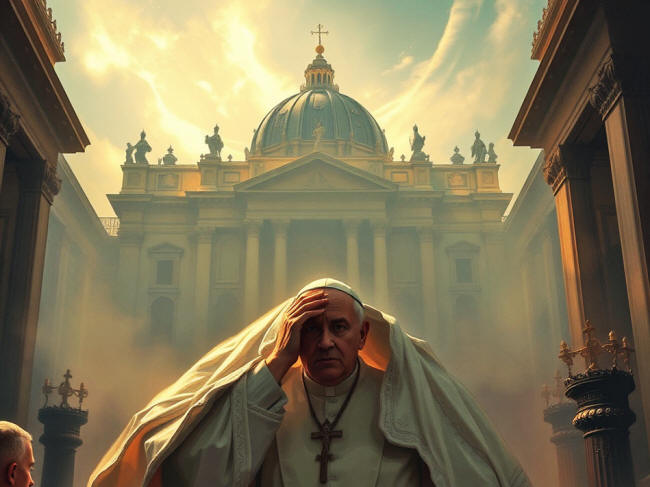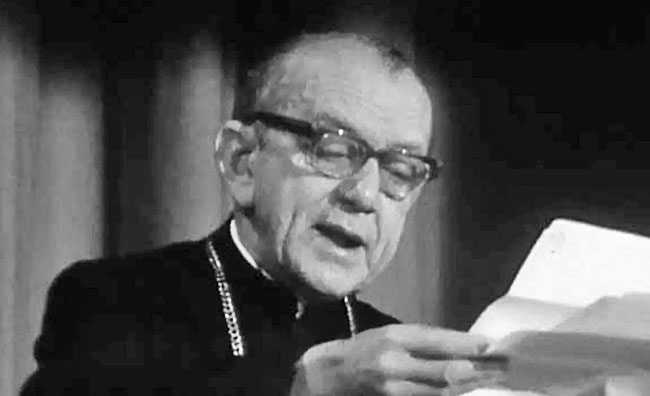|
by A Lily Bit April 21, 2025 from ALilyBit Website Information sent by Email by 'Important info Pope'
was a Trojan Horse for Globalist Authoritarianism and why the Church embraced
Cultural
Marxism...
has championed the "preferential option for the poor," a Catholic principle prioritizing the needs of the marginalized, inspired by figures like Dom Hélder Câmara.
This aligns with his support for the Great Reset, a World Economic Forum initiative led by Klaus Schwab to redistribute wealth and reshape capitalism post-COVID-19.
However, the fusion of Francis's social justice ideals with Schwab's globalist agenda is deceptive.
Marketed as a push for equality and sustainability, it masks a technocratic plan to centralize power, erode private property, and establish a two-tiered society
where
elites maintain control...
Before anyone sheds a tear for Jorge Mario Bergoglio, let's expose who he really represented:
Francis has been a loyal ally of the WEF's vision, particularly its "Great Reset" scheme to reshape the global economy under the guise of post-COVID recovery.
The WEF, led by
Klaus Schwab, is a hub for
billionaires, CEOs, and politicians plotting centralized control,
and Francis has been their "spiritual" cheerleader...
Then there's the Council for Inclusive Capitalism, a WEF-adjacent group Francis eagerly joined in 2020.
Backed by globalist heavyweights like Lynn Forester de Rothschild and corporate giants like Mastercard, this council pushes "stakeholder capitalism" - a WEF buzzword for corporates playing nice while tightening their grip on power.
Francis didn't just endorse it:
He's also been a regular pen pal with Davos.
These aren't Catholic talking points; they're
straight out of Schwab's globalist script.
Pope Francis has been the WEF's inside man, dressing up their power grab in robes of humility.
His papacy has prioritized globalist causes over the Church's spiritual mission, and the evidence is undeniable.
But how did this happen...?
This bishop, known as the "Red Bishop," serves as
a link between Schwab's expansive globalist network and the
influential political power of Pope Francis.
He supported the model of Cuba under Castro and the Mao Cultural Revolution, which resulted in the death or destruction of millions of Chinese people in a purge of Mao's enemies.
He was a prominent figure in spreading the Church
movement known as "Liberation Theology" during the 1960s and 1970s.
In a manner reminiscent of Mussolini's
Blackshirts or Hitler's Brownshirts in the 1920s,
the AIB in Brazil fielded paramilitary groups known as the
Greenshirt, who violently attacked communists on the streets
during the 1930s.
Later, when a Brazilian author attempted to write a biography of Camara, who by then had become a Bishop,
Following the end of World War II in 1946, Hélder Câmara underwent a significant ideological shift.
He moved away from his previous pro-Mussolini and pro-Hitler fascist leanings and embraced a pro-Marxist "progressivism" as Assistant General of the Brazilian Catholic Action.
The youth group of this organization, JUC,
openly supported the
Castro Cuban Revolution in 1959.
The Catholic group AP adopted statutes which praised the Soviet Revolution and acknowledged,
From 1964 to 1985, Dom Hélder served as
Archbishop of Olinda and Recife in the Northeast of Brazil.
This movement was later coined Liberation
Theology by the Peruvian priest
Gustavo Gutierrez.
According to the movement, the Catholic Church had a responsibility to support the process of liberation for oppressed and exploited communities in the Third World.
This was a radical departure from the Church's previous stance.
Priests began to condone the use of violence
against dictators such as Nicaragua's Somoza, and some even
took up arms and joined Marxist groups like the Sandinistas in the
1970s.
It aimed to forcefully liberate the poorest members of society in the developing world and redistribute wealth.
Communist-backed guerrilla movements in predominantly Catholic countries saw the value in priests giving their wars a social legitimacy beyond Marxist ideology.
Gutierrez himself stated that,
Father Leonardo Boff, a Brazilian advocate of Hélder Câmara's social activism for the Church, went as far as to say,
Boff and other advocates of Liberation Theology have expanded their agenda beyond land reform, now including support for radical climate change initiatives as part of their liberation mission.
This movement has spread globally from Latin America to Africa and Asia, influencing various social movements, such as,
Essentially, Hélder Câmara's Liberation
Theology contributed to the creation of a societal climate that
promotes the "victim" ideology, which is central to many
contemporary social movements.
A Surprising
Duo shapes Klaus Schwab's Worldview
While Kissinger was known for his controversial role as Nixon's Secretary of State, where he was involved in plotting the overthrow of left-leaning governments in countries like Chile and Argentina, Camara's work was focused on mobilizing the poor against oppressive governments.
Despite their vastly different approaches, both
men left a lasting impression on Schwab's life and thinking.
In the book, Schwab acknowledges the significant role that Kissinger played in selecting speakers and guests for the elite business gatherings hosted by the Forum.
at the WEF in 1974 (Source: WEF)
In his subsequent writing,
Evangelii gaudium, also
published in 2013, Francis embraced the language of Liberation
Theology, which was closely associated with Camara and other
advocates for the poor.
This phrase may sound lofty, but what does it actually mean?
The term "preferential option for the poor" is a significant concept in Catholic social teaching.
This principle was championed by many influential
figures, including Dom Hélder Câmara, who was praised by Pope
Francis for his contributions to the Church in Brazil.
The Pope's call for a more equitable and sustainable economic system resonated with many who believe that the current economic model perpetuates inequality and environmental degradation.
The preferential option for the poor, as articulated by Pope Francis, is thus a fundamental aspect of his vision for a more just and inclusive global society.
It is a reminder that the needs and dignity of
the most vulnerable members of society should be at the forefront of
any efforts to promote human flourishing.
Since then, the current Pope has taken a series of unprecedented political stands on various social issues, including,
These actions have led to a controversial papacy
for Francis.
Hitching the
Pope to the Great Reset
The "fusion" of the ideologies of Francis and Schwab,
In November 2020, Pope Francis declared that a new "social justice" is needed, and that private ownership is not something obvious in Christianity.
He does not elaborate.
In his writing, he emphasized that business abilities, seen as a gift from God, should be directed towards aiding others and eradicating poverty.
He also emphasized that the right to private property should always be subordinated to the universal destination of the earth's goods, ensuring everyone's right to their use.
Interestingly, this aligns closely with the ideas presented by Schwab of the WEF in his 2020 book, Covid-19 - The Great Reset, where he predicts a post-'pandemic' era of massive wealth redistribution from the wealthy to the impoverished and from capital to labor.
According to Schwab, the era of free market neoliberalism is now obsolete, and significant government intervention is required to implement sustainable environmental policies.
On the WEF's official website, Schwab's organization famously presented a future where no individual owns anything.
The video suggests that people will rent
everything they require.
Countries like the Soviet Union and Venezuela attempted to implement communism but failed due to the government taking over the means of production, leading to a lack of innovation and efficiency.
China took a different approach by partnering
with industries, which allowed capitalism to take root and form.
This led to a more efficient and innovative economy, but with
authoritarianism still present.
Once these industries reach a certain level of size and influence, the Chinese government invites them to enter into a partnership, essentially making them an extension of the state...
This results in a form of authoritarianism that could be described as "high-tech fascism," where the government is aligned with various industries.
From the public-facing side, this system appears as,
After World War II,
You require a sort of,
And this is exactly what Pope Francis was
used for...!
As I mentioned in several other articles, the state has had a long-standing marriage with central banking, enjoying a forever monopoly for the past 400 years.
Now, with the looming emergence of Central
Bank Digital Currencies (CBDC),
they have a chance to solidify this monopoly forever.
They relish the idea of living in a high tier of flourishing with no competition.
That's why they are marketing the Great Reset as a utopia of equality, environmentalism, poverty reduction, and universal love, so that,
|




